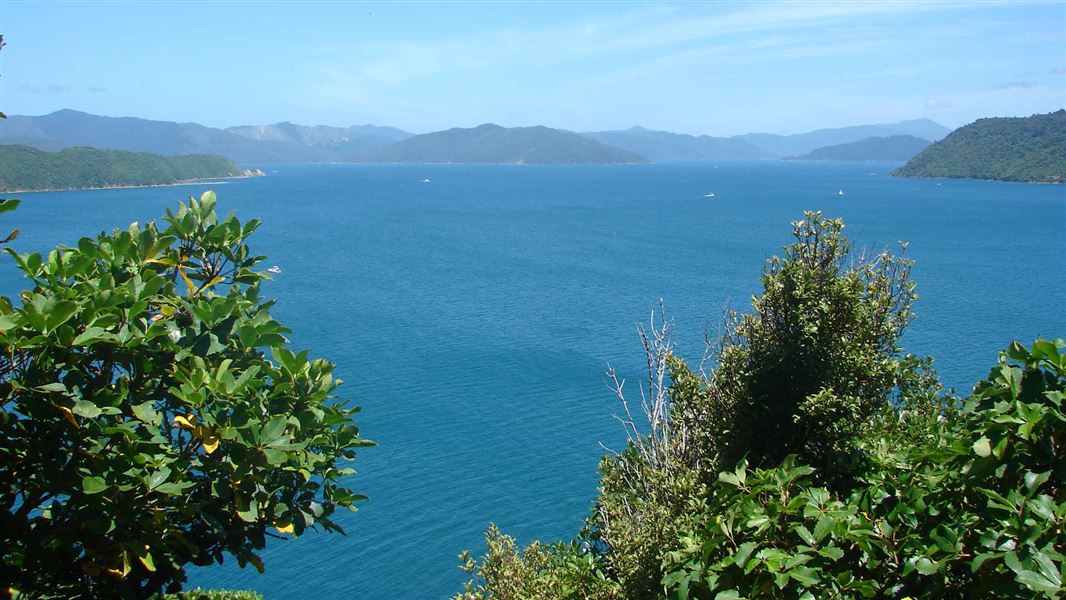Motuara Island lies in Queen Charlotte Sound opposite Ship Cove, approximately 32 km from Picton. You can get there with your own boat, by taking scenic cruise or by sea kayak. There is jetty available.
Since rats were eradicated in 1992, saddleback/tīeke, South Island robin/toutouwai, yellow-crowned parakeet/kākāriki and Maud Island frog have been transferred to the island.
It is also used as a crèche for rowi kiwi, which are only found in South Ōkārito Forest, near Franz Josef. Rowi have been decimated by stoats – fewer than 500 are left. Eggs are hatched in captivity and the chicks transported to Motuara Island. Once they weigh 1 kg they can defend themselves from stoats and are returned to the wild.
Although no replanting programmes have ever been carried out, the island has regenerated over the last 70 years to the low forest you see today. All introduced pests were removed in the early 1990s and the island is now home to a variety of native species, which have struggled to survive, or died out on the mainland. These include saddleback/tieke, New Zealand robin/toutouwai, bellbird/korimako, tūī, grey warbler/riroriro, New Zealand pigeon/kererū, silver eye/tauhou, fantail/pīwakawaka, Maud Island frog and the Marlborough green gecko.
The saddleback or tīeke belongs to New Zealand's unique wattlebird family, an ancient group which includes the endangered kōkako and the extinct huia. The South Island saddleback reached the brink of extinction last century and today’s birds are descended from 36 saddlebacks rescued in 1964. This species was translocated to Motuara Island in 2009. Listen out for its distinctive call as you walk around the island:
Saddleback/tīeke song (MP3, 1,406K)
1 minute 29 second recording of a pair of a male South Island saddleback/tīeke giving territorial calls responding to playback of taped calls.
Motuara Island was significant for Māori. At the southern tip of Motuara Island is smaller Hippa Island which was the site of a pre-European Māori pā. The adjacent Ship Cove was where Māori first met pakeha on a sustained basis.
Motuara Island was the location where, in 1770, Captain Cook proclaimed British sovereignty over the South Island.
Motuara Island was burned off around the beginning of the 20th Century and was used to graze sheep and later used as an experimental Angora goat farm. In 1910 a Mr T Turner was living on the Island as a ranger to catch poachers shooting pigeons at Ship Cove.
Check you are pest-free
Check, clean, and seal your gear to ensure you don't bring pests, soil, and seeds.
Whakatū/Nelson Visitor Centre
| Phone: | +64 3 546 9339 |
| Email: | nelsonvc@doc.govt.nz |
| Address: | Millers Acre/Taha o te Awa 1/37 Halifax Street Nelson 7010 |
| Hours: | Visitor centre hours and services |
